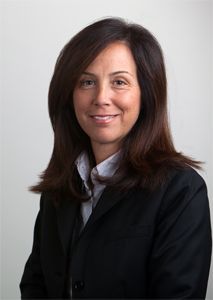
By Erin Shanahan
The Gabelli School of Business and the Graduate School of Business Administration just commenced a yearlong process of unification this summer. The integration officially began July 1 under the supervision of Donna Rapaccioli, dean of the Gabelli School of Business.
Rapaccioli works with the university president and provost, the board of trustees and the business faculty to plan the future of the business school for 2020. In addition, she leads the 140 full-time business faculty members as well as a team of about 70 full-time administrators.
“We expect it will take about a year to fully unify the two schools,” Rapaccioli commented. “The unification is going to allow us to create a Ph.D program in business at the graduate level. This will help us to attract the best and brightest future business scholars to Fordham. Previously, great business minds had to go get their doctorates elsewhere.”
Fordham’s business school has been climbing the ranks in prestige despite its relative youth. The opening of a new business school on the Lincoln Center Campus, as well as this new initiative, will only add to the school’s success.
“Our motivation was — and still is — the desire to move the business schools into the top 25 for business education worldwide.” Rapaccioli said. “By making an investment in business education at Fordham, we can achieve excellence. This will mean continually improving our academic programs, truly being a global school with a global curriculum, placing more students in great jobs soon after graduation and strengthening our faculty members’ achievements in research, teaching and service.”
“The integration is also helping us implement a full-scale revision of our full-time MBA program,” Rapaccioli continued. “We now have a ‘cohort’ MBA program that is based in the same principles as the undergraduate program: a team-based approach that includes intensive consulting-style learning experiences and an emphasis on skills like writing and public presentation.”
Students are excited by the potential changes and the integration of the graduate and undergraduate schools. “I think the integration is a fantastic opportunity for undergraduate students to get a legitimate idea of what happens after the four years in GSB,” said Aric Sethre, GSB ’15. “I hope that networking programs will become available. Also, I think a workshop between the graduate school and undergraduate GSB students would be very helpful. The undergraduate students would be able to seek advice from more experienced adults that have a better idea of how to write a resume and interview for a specific position.”
Emma Archard, GSB ’18, said, “I’m excited, as an undergraduate student, to have the opportunity to hear from more people with firsthand experience of graduate school. I hope I will be able to talk to graduate Gabelli students and discuss what they found the most helpful and useful during their time as an undergraduate student.”
Dean Rapaccioli also said the changes would create a community that will provide students with a strong network.
“Both undergraduate and graduate students will benefit from a ‘double-size’ alumni network,” she stated. “You are all now part of the same business school community. Consider this: until now, two EY [Ernst and Young] partners sitting in offices next to each other — one who earned his undergraduate degree from the Gabelli School, and the other who got her MBA at the graduate school — were part of two separate alumni communities. No longer.”
Not only will Gabelli Students benefit from the integration, but so will all Fordham graduates.
“All students will benefit in the rise in reputation that we expect to follow the unification. It will take time to happen, but if we succeed, the value of everyone’s Fordham degree will be greater,” Rapaccioli said.
She concluded, “It is going to take a collaborative effort, on a long-horizon timeline, to achieve all of our goals. But I am confident that we will.”








































































































































































































